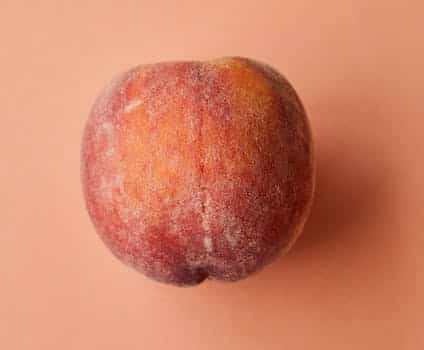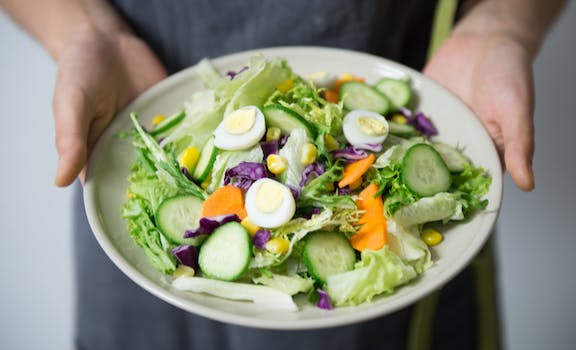
Maintaining a healthy meal plan is essential for vegetarians to ensure they meet their nutritional needs. With the right approach, a vegetarian diet can provide all the necessary nutrients for a balanced and fulfilling lifestyle. In this ultimate guide, we will explore the key components of a healthy meal plan for vegetarians, including plant-based protein sources, essential vitamins and minerals, and practical tips for meal preparation. Whether you are a long-time vegetarian or considering adopting this lifestyle, this comprehensive guide will help you create a well-rounded and nourishing meal plan that supports your overall health and well-being.
- 1. Introduction
- 1.1. What is a healthy meal plan?
- 1.2. Benefits of following a healthy meal plan
- 1.3. Why choose a vegetarian meal plan?
- 2. Key Components of a Healthy Vegetarian Meal Plan
- 2.1. Balanced macronutrients
- 2.2. Variety of fruits and vegetables
- 2.3. Plant-based protein sources
- 2.4. Incorporating whole grains
- 2.5. Healthy fats
- 3. Sample Meal Ideas for a Vegetarian Meal Plan
- 3.1. Breakfast options
- 3.2. Lunch and dinner ideas
- 3.3. Snack suggestions
- 3.4. Hydration and beverage choices
- 3.5. Dessert options
1. Introduction
A healthy meal plan is essential for maintaining a balanced diet and overall well-being. For vegetarians, it is even more crucial to ensure that their diet includes all the necessary nutrients. This ultimate guide will provide you with all the information you need to create a healthy meal plan specifically designed for vegetarians. Whether you are a new vegetarian or have been following this lifestyle for years, this guide will help you make informed choices and create delicious, nutritious meals that will keep you energized and satisfied. From understanding the basics of vegetarian nutrition to exploring various food groups and incorporating essential vitamins and minerals, this guide covers it all. Get ready to embark on a journey towards a healthier lifestyle with our ultimate guide to a healthy meal plan for vegetarians!
1.1. What is a healthy meal plan?
A healthy meal plan is a well-balanced eating plan that provides all the essential nutrients and energy needed for optimal health. It is designed to include a variety of nutritious foods from different food groups, such as fruits, vegetables, whole grains, legumes, nuts, and seeds. A healthy meal plan ensures that individuals meet their daily nutrient requirements while promoting overall wellness and preventing chronic diseases. It focuses on consuming adequate amounts of protein, carbohydrates, healthy fats, vitamins, minerals, and fiber while limiting the intake of added sugars, sodium, and unhealthy fats. A well-structured meal plan can help individuals maintain a healthy weight, support digestion, boost energy levels, enhance mental clarity, and improve overall quality of life. By following a healthy meal plan, vegetarians can ensure they are getting all the necessary nutrients while enjoying a diverse and delicious array of plant-based foods.
1.2. Benefits of following a healthy meal plan
Following a healthy meal plan can have numerous benefits for individuals who choose to adopt a vegetarian lifestyle. A well-balanced and nutritious diet not only supports overall health and wellbeing but also helps to prevent the risk of various chronic diseases. By incorporating a variety of plant-based foods, vegetarians can ensure they are getting all the essential nutrients their bodies need. This article will serve as the ultimate guide to creating a healthy meal plan specifically tailored for vegetarians, providing valuable information and tips to make the journey towards a healthier lifestyle easier and more enjoyable.
1.3. Why choose a vegetarian meal plan?
A vegetarian meal plan offers numerous benefits for individuals looking to improve their overall health and well-being. By choosing a vegetarian diet, you can enjoy a wide variety of delicious and nutrient-rich foods that can help you maintain a healthy weight, reduce the risk of chronic diseases, and support the environment.
One of the main reasons to choose a vegetarian meal plan is its potential to promote weight loss and weight management. Plant-based diets are generally lower in calories and saturated fats compared to diets that include meat. This can contribute to maintaining a healthy body weight and reducing the risk of obesity.
Additionally, vegetarian meal plans are rich in fiber, vitamins, minerals, and antioxidants. These vital nutrients are abundantly found in fruits, vegetables, whole grains, legumes, nuts, and seeds, which are staple components of a vegetarian diet. Consuming a variety of these plant-based foods can enhance your overall nutrient intake and support optimal health.
Moreover, studies have shown that vegetarian diets can reduce the risk of chronic diseases, including heart disease, high blood pressure, type 2 diabetes, and certain types of cancer. Plant-based diets are naturally low in cholesterol and saturated fats, which are known to contribute to the development of these conditions. Instead, they are high in heart-healthy unsaturated fats and beneficial plant compounds that can help protect against chronic diseases.
Choosing a vegetarian meal plan also has a positive impact on the environment. Animal agriculture is a major contributor to greenhouse gas emissions, deforestation, and water pollution. By reducing or eliminating the consumption of animal products, you can significantly reduce your carbon footprint and contribute to a more sustainable planet.
In conclusion, opting for a vegetarian meal plan can bring about numerous advantages for your health, weight management, and the environment. By embracing a plant-based diet, you can enjoy a wide range of flavorful and nutritious foods while promoting your overall well-being.
2. Key Components of a Healthy Vegetarian Meal Plan
A healthy vegetarian meal plan consists of several key components that ensure you get all the necessary nutrients for your body. These components include:
1. Protein-rich Foods: As a vegetarian, it’s important to incorporate various sources of protein into your meal plan. This can include legumes, such as beans, lentils, and chickpeas, tofu, tempeh, and edamame, as well as dairy products like Greek yogurt, cottage cheese, and eggs if you consume them.
2. Whole Grains: Whole grains are an essential part of a vegetarian meal plan as they provide complex carbohydrates, fiber, and essential minerals. Include options like quinoa, brown rice, whole wheat bread, oats, and barley in your meals.
3. Fruits and Vegetables: Fill your plate with a variety of colorful fruits and vegetables to ensure you get a wide range of vitamins, minerals, and antioxidants. Aim for at least five servings a day, including leafy greens, berries, citrus fruits, cruciferous vegetables, and more.
4. Healthy Fats: Incorporate healthy fats into your meal plan by including foods like avocados, nuts, seeds, and olive oil. These fats provide essential fatty acids and help in the absorption of fat-soluble vitamins.
5. Calcium-rich Foods: Since many vegetarians avoid dairy, it’s important to include alternative sources of calcium in your diet. Consider foods like fortified plant-based milk, tofu, almonds, broccoli, and leafy greens to meet your calcium needs.
6. Vitamin B12: Vitamin B12 is primarily found in animal-based products, so it’s crucial for vegetarians to ensure they get an adequate amount. Look for fortified plant-based milk, breakfast cereals, nutritional yeast, and consider taking supplements if needed.
By incorporating these key components into your vegetarian meal plan, you can ensure that you meet your nutritional needs and maintain a healthy lifestyle.
2.1. Balanced macronutrients
A balanced macronutrient profile is essential for a healthy vegetarian meal plan. Macronutrients, which include carbohydrates, proteins, and fats, provide the necessary energy and nutrients for the body to function optimally. Vegetarians need to ensure they consume a variety of foods that fulfill their macronutrient requirements.
Carbohydrates are a primary source of energy and should make up a significant portion of a vegetarian’s meal plan. Opt for complex carbohydrates such as whole grains, legumes, fruits, and vegetables, as they provide essential fiber, vitamins, and minerals.
Proteins are crucial for maintaining and repairing body tissues, as well as supporting the immune system. While animal products are commonly associated with protein, vegetarians can obtain high-quality protein from plant-based sources such as tofu, tempeh, lentils, beans, nuts, and seeds.
Fats are another important component of a balanced meal plan. Incorporating healthy fats, such as avocados, olive oil, nuts, and seeds, is vital for nutrient absorption and the production of hormones. However, it’s important to consume fats in moderation, as they are high in calories.
By including a variety of carbohydrates, proteins, and fats in their meals, vegetarians can ensure they meet their nutritional needs and maintain a well-balanced macronutrient profile.
2.2. Variety of fruits and vegetables
Including a variety of fruits and vegetables in a vegetarian meal plan is essential for maintaining a healthy diet. Fruits and vegetables provide a wide range of nutrients, vitamins, minerals, and antioxidants that are vital for optimal health.
When it comes to choosing fruits, options like apples, oranges, bananas, berries, and grapes are excellent choices. These fruits are not only delicious but also packed with vitamins and fiber. Incorporating a mix of these fruits into your daily meal plan can help boost your immune system and improve digestion.
In terms of vegetables, there are numerous options to consider. Leafy greens like spinach, kale, and lettuce are rich in iron, calcium, and vitamin K. Other vegetables like broccoli, cauliflower, carrots, bell peppers, and tomatoes are also great additions to a vegetarian meal plan. These vegetables provide essential vitamins, minerals, and antioxidants while adding variety to your dishes.
It is important to include a variety of fruits and vegetables in your vegetarian meal plan to ensure you are obtaining a wide range of nutrients. Experiment with different fruits and vegetables to keep your meals interesting and enjoyable while reaping the health benefits they offer.
2.3. Plant-based protein sources
Some of the best plant-based protein sources for a healthy vegetarian meal plan include legumes, such as lentils, chickpeas, and black beans. These are not only rich in protein, but also high in fiber and packed with essential nutrients. Other great sources of plant-based protein include tofu, tempeh, and edamame, which are all derived from soybeans. Nuts and seeds, such as almonds, walnuts, chia seeds, and hemp seeds, are also excellent sources of protein for vegetarians. Additionally, whole grains like quinoa, brown rice, and oats provide a good amount of protein and are versatile enough to be incorporated into various vegetarian dishes. By including a combination of these plant-based protein sources in your vegetarian meal plan, you can ensure that you are meeting your protein needs while maintaining a healthy and balanced diet.
2.4. Incorporating whole grains
Incorporating whole grains is an essential component of a healthy vegetarian meal plan. Whole grains are packed with nutrients, including fiber, protein, and various vitamins and minerals. They provide sustained energy and help promote a feeling of fullness, making them an excellent choice for any vegetarian diet.
Whole grains can be easily incorporated into meals in various ways. One option is to include whole grain bread or wraps as a base for sandwiches or wraps. This adds a satisfying crunch and texture while providing the added benefits of whole grains.
Another way to incorporate whole grains is by choosing whole grain pasta, rice, or quinoa as the base for meals. These options are not only nutritious but also versatile and can be paired with various vegetables, legumes, and sauces to create delicious and satisfying vegetarian dishes.
Additionally, whole grain cereals and oats can be enjoyed as a wholesome breakfast option. They can be topped with fruits, nuts, and seeds for added flavor and nutrition.
Overall, incorporating whole grains into a vegetarian meal plan is a simple yet effective way to enhance its nutritional value and ensure a well-balanced diet.
2.5. Healthy fats
Healthy fats are an essential component of a balanced vegetarian meal plan. They provide energy, support brain function, and help absorb fat-soluble vitamins. Including healthy fats in your diet can also promote healthy skin, reduce inflammation, and support heart health.
Some excellent sources of healthy fats for vegetarians include avocados, nuts and seeds, olive oil, coconut oil, and nut butters. These foods are not only rich in healthy fats but also provide other important nutrients like fiber, vitamins, and minerals.
Avocados are a versatile fruit that can be added to salads, sandwiches, or used as a spread. They are high in monounsaturated fats, which can help lower bad cholesterol levels. Nuts and seeds, such as almonds, walnuts, chia seeds, and flaxseeds, are packed with omega-3 fatty acids, which are beneficial for heart health.
Olive oil is a staple in Mediterranean cuisine and is rich in monounsaturated fats. It can be used for cooking, dressing salads, or drizzling over roasted vegetables. Coconut oil, on the other hand, is a plant-based saturated fat that provides a unique flavor to dishes and has been associated with various health benefits.
Nut butters, like almond butter or peanut butter, are not only delicious but also a great source of healthy fats. They can be spread on whole-grain bread or added to smoothies for an extra creamy texture.
Including these healthy fats in your vegetarian meal plan can help ensure that you’re getting a well-rounded and nutritious diet.
3. Sample Meal Ideas for a Vegetarian Meal Plan
Whether you’re a long-time vegetarian or just starting to explore plant-based eating, having a well-planned meal plan can ensure that you’re getting all the nutrients your body needs. Here are some sample meal ideas to help you kickstart your vegetarian journey:
1. Breakfast: Start your day with a protein-packed smoothie made with almond milk, spinach, banana, and a scoop of plant-based protein powder. Alternatively, enjoy a bowl of oatmeal topped with fresh fruits and a drizzle of honey.
2. Lunch: For a satisfying midday meal, try a quinoa salad with mixed vegetables, chickpeas, and a zesty lemon vinaigrette. Or, have a whole-wheat wrap filled with hummus, avocado, lettuce, and sliced tomatoes.
3. Snack: Keep your energy levels up with some crunchy carrot sticks and a side of homemade tzatziki sauce. Alternatively, enjoy a handful of mixed nuts or a piece of fresh fruit.
4. Dinner: Get creative with a stir-fry made with tofu, bell peppers, broccoli, and a tangy ginger-soy sauce. Serve it over a bed of brown rice or quinoa. Or, indulge in a hearty vegetable curry served with whole-grain naan bread.
5. Dessert: Treat yourself to a refreshing fruit salad with a sprinkle of chia seeds or a small piece of dark chocolate. Alternatively, whip up a batch of homemade banana ice cream by blending frozen bananas with a splash of almond milk.
Remember to always listen to your body’s needs and consult with a healthcare professional or registered dietitian for personalized advice. Enjoy the journey to a healthier vegetarian lifestyle!
3.1. Breakfast options
Breakfast is often considered the most important meal of the day, and for good reason. It provides the fuel and nutrients needed to kick-start your day on a healthy note. For vegetarians, there are plenty of delicious and nutritious options to choose from. Here are some sample meal ideas for a vegetarian breakfast:
1. Veggie Omelette: Whip up a fluffy omelette using plant-based ingredients like tofu, spinach, bell peppers, and onions. Add a sprinkle of nutritional yeast for a cheesy flavor.
2. Overnight Chia Pudding: Mix chia seeds with your choice of plant-based milk (such as almond or coconut milk) and let it sit in the fridge overnight. In the morning, top it with fresh fruits, nuts, and a drizzle of honey.
3. Avocado Toast: Toast a slice of whole grain bread and spread mashed avocado on top. Add a sprinkle of salt, pepper, and your favorite toppings like sliced tomatoes or sprouts.
4. Smoothie Bowl: Blend together frozen fruits like bananas, berries, and spinach with plant-based milk or yogurt. Pour the smoothie into a bowl and top it with granola, sliced fruits, and a dollop of nut butter.
5. Vegan Pancakes: Make a batch of fluffy pancakes using a combination of flour, plant-based milk, baking powder, and a sweetener like maple syrup. Serve with a drizzle of syrup and fresh fruits.
These are just a few ideas to get you started. Feel free to mix and match ingredients to suit your taste preferences and dietary needs. Remember to include a good source of protein, healthy fats, and fiber in your breakfast to keep you energized throughout the morning.
3.2. Lunch and dinner ideas
For those following a vegetarian meal plan, there are plenty of options for delicious and nutritious lunches and dinners. Here are some sample meal ideas to help you plan your meals:
1. Lentil and vegetable stir-fry: Sauté a mix of colorful vegetables such as bell peppers, carrots, and broccoli with cooked lentils. Season with your favorite spices and serve over a bed of brown rice or quinoa.
2. Chickpea salad: Combine cooked chickpeas with diced cucumbers, cherry tomatoes, red onions, and fresh herbs like parsley or cilantro. Toss with a simple dressing made from olive oil, lemon juice, and garlic.
3. Sweet potato and black bean tacos: Roast sweet potato chunks in the oven until tender. Mash black beans with spices like cumin and chili powder. Fill corn tortillas with the mashed beans, roasted sweet potatoes, and your favorite toppings like avocado, salsa, and shredded lettuce.
4. Eggplant Parmesan: Slice eggplant into rounds and bake until tender. Layer the slices with marinara sauce and mozzarella cheese. Bake until the cheese is melted and bubbly. Serve with a side of whole wheat spaghetti.
5. Quinoa stuffed bell peppers: Cook quinoa according to package instructions. Mix cooked quinoa with diced bell peppers, corn, black beans, and your choice of herbs and spices. Stuff the mixture into halved bell peppers and bake until the peppers are tender.
Remember to vary your meals and include a variety of fruits, vegetables, whole grains, legumes, and plant-based proteins in your vegetarian meal plan for optimal nutrition.
3.3. Snack suggestions
Snacks are an essential part of any vegetarian meal plan, providing a quick and convenient way to curb hunger between meals. Here are some delicious snack suggestions that are both healthy and satisfying:
1. Fresh fruits: Grab a handful of your favorite fruits like apples, oranges, berries, or grapes for a refreshing and energizing snack.
2. Nuts and seeds: Almonds, walnuts, pumpkin seeds, and sunflower seeds are packed with nutrients and make for a crunchy and filling snack.
3. Greek yogurt: Opt for a plain Greek yogurt and add some sliced fruits or a drizzle of honey for a protein-rich and creamy snack.
4. Hummus and vegetables: Enjoy some carrot sticks, cucumber slices, or bell pepper strips with a side of hummus for a tasty and nutritious snack.
5. Whole grain crackers with avocado: Spread mashed avocado on whole grain crackers for a satisfying snack that offers healthy fats and fiber.
6. Trail mix: Create your own trail mix by combining dried fruits, nuts, and seeds for a portable and nutrient-dense snack.
Remember to choose snacks that align with your dietary preferences and individual needs. These snack ideas can be enjoyed as part of a balanced vegetarian meal plan.
3.4. Hydration and beverage choices
Hydration is an essential aspect of maintaining a healthy meal plan for vegetarians. Staying properly hydrated not only ensures optimal bodily functions but also helps in digestion and nutrient absorption. While water is the best choice for keeping oneself hydrated, there are other beverage options that can be included in a vegetarian meal plan.
One such option is herbal tea. Herbal teas, such as chamomile, peppermint, or ginger tea, provide hydration while also offering various health benefits. These teas are free from caffeine and can be enjoyed hot or cold.
Another beverage choice for vegetarians is freshly squeezed fruit juices. Juices made from fruits like oranges, grapefruits, or berries are not only refreshing but also provide essential vitamins and minerals. However, it is important to consume them in moderation due to their natural sugar content.
Vegetable juices, such as carrot or beetroot juice, are also excellent choices for hydration. These juices are packed with nutrients and can be a great addition to a vegetarian meal plan.
Lastly, plant-based milk alternatives like almond milk, soy milk, or oat milk can be incorporated into a vegetarian meal plan. These milk alternatives provide hydration along with essential nutrients like calcium and vitamin D. They can be used in smoothies, cereal, or enjoyed on their own.
It is important to choose beverages that are low in added sugars and artificial additives. Reading labels and opting for natural and organic options is always a good idea. By including a variety of hydrating beverages in a vegetarian meal plan, individuals can ensure they stay well-hydrated while enjoying a diverse range of flavors.
3.5. Dessert options
When it comes to planning a healthy meal plan for vegetarians, it is important to include a variety of delicious and nutritious dessert options. Here are some mouthwatering options that will satisfy your sweet tooth while still keeping your diet on track.
1. Fruit Parfait: Layer fresh fruits like berries, mangoes, and bananas with yogurt and granola for a refreshing and indulgent treat.
2. Vegan Chocolate Mousse: Made with silken tofu, cocoa powder, and maple syrup, this creamy and rich dessert is a perfect guilt-free indulgence.
3. Chia Pudding: Mix chia seeds with plant-based milk, sweetener, and your favorite flavors like vanilla or matcha. Let it sit overnight for a delightful and healthy pudding.
4. Coconut Bliss Balls: Combine shredded coconut, dates, nuts, and a hint of maple syrup in a food processor. Roll the mixture into bite-sized balls for a quick and energy-boosting dessert.
5. Baked Apples: Core apples and stuff them with a mixture of oats, cinnamon, and nuts. Bake until the apples are tender and serve with a dollop of vegan yogurt.
These dessert options provide a perfect ending to your vegetarian meal plan, ensuring that you enjoy both health and flavor in every bite.
Conclusion
In conclusion, a healthy meal plan for vegetarians is not only possible but also highly beneficial for overall well-being. By incorporating a variety of plant-based proteins, fruits, vegetables, whole grains, and healthy fats into your diet, you can ensure that you are meeting your nutritional needs while enjoying delicious and satisfying meals. With careful planning and consideration, vegetarianism can be a sustainable and enjoyable lifestyle choice that promotes good health and supports a thriving planet.


